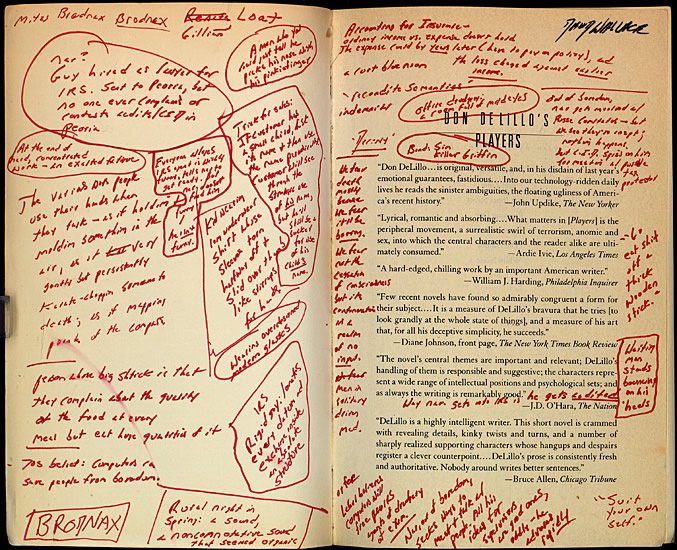
Here's the question I am posing today: Do you openly embrace writing in books, or do you frown upon it? Growing up the child of book collectors, I know the value of a pristine book. Dented covers, stains and marks on pages can be detrimental to the book's worth. But part of me disagrees with this notion. Finding a book with personal notes that someone has scribbled in the margins feels like a gift. It increases the value of the book, in my opinion. These notes have changed the book from its original state (novel, biography, self-help tome) into a diary of sorts. How did certain passages resonate with a reader? What quotes did he or she find so inspiring that it needed to be highlighted? When I read a novel on my Kindle, I love stumbling upon a line that has been highlighted by other readers. Amazon even informs the reader on how many highlights a particular passage received. You can turn this function off, but why would you? Aren't you curious about what ignites the interests of your fellow readers?
So what about writing in books? There have been some interesting profiles on the act of "marginalia" in the New Yorker and the New York Times. Without marginalia we never would have known that Jack Kerouac borrowed a copy of A Week on the Concord and Merrimack Rivers by Henry David Thoreau (a book he borrowed but never returned) and made small notations in the margins. According to the New Yorker, "On page 227, this sentence, 'The traveller must be born again on the road' -- was underlined in pencil, with a small, neat check mark beside it." Fascinating!
According to the Times, if not for these personal scribblings in a book we would not know that "when Nelson Mandela was imprisoned in South Africa in 1977, a copy of Shakespeare was circulated among the inmates. Mandela wrote his name next to the passage from Julius Caesar that reads, 'Cowards die many times before their deaths.'"
Personal notations give readers a glimpse into great minds. What if Mandela or Kerouac had not marked these passages? It wouldn't change the rich history we already have on these men, but these footnotes could not be added to their personal stories. These notes and thoughts add to our understanding of great minds. But marginalia isn't reserved for leaders and notable historical figures. It's for everyone. Have you ever found an old book with your writing scrawled in the margins or a passage highlighted in yellow? Doesn't it make you stop and wonder for a moment about that person? That earlier version of yourself? A younger more innocent or naive mind? Or perhaps a more inspiring and hopeful version of your present day self? Regardless of how you view your earlier notations, it causes you to pause and reflect. What if someone else finds your book, a relative or even a stranger? They, too, will pause on your notation. They will wonder about the previous owner. They will counter their own thoughts and reflections on a quote they may have missed if not for your notes. The process of reading will suddenly become much more active.
But is it presumptuous to think that others may benefit from your notations? Would my friends enjoy borrowing my books and seeing scribbles and highlights peppered across the pages? Would it be distracting and unwanted? Would I have to keep the books I've written in separate, or secret, for fear of feeling too exposed? So the uncertainty continues. But I can't help but wonder how many wonderful quotes or passages from great novels have been forgotten because I didn't grab that highlighter?
Image via the Harry Ransom Center.
